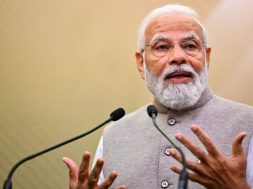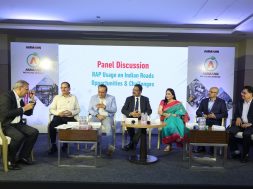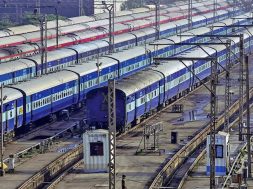Move is on to replace diesel gensets with solar panels at Mobile towers: Dr. Abdullah
The union ministry of Renewal Energy is in consultation with the telecommunications ministry for replacing the diesel power generators of all mobile phone towers with solar panels, informed new and renewable energy minister Dr. Farooq Abdullah while delivering an address to a conference on rural energy security through distributed clean generation.
Dr. Abdullah said that India should make a gradual switchover to renewable energies, as coal and diesel prices were rising and becoming unaffordable. In view of this, the union government had launched Jawaharlal Nehru solar mission last year with an ambitious programme to set up an installed solar power generation capacity of 20,000 MW by 2022.
“Of this, already a total of about 1,300 MW capacity has been set up in different States and bidding will be done for an additional 300 MW capacity soon”, the minister said and emphasized the need to indigenize the equipment manufacture for reducing the cost of solar panels and machinery. He has also announced the Government’s decision to make Maharashtra’s popular pilgrimage centre, Shirdi, into a ‘Green Town’ which would fully rely on renewable energies.
Former minister for power, Suresh Prabhu informed that demand for power always outgrew supply during the 11th Five-Year Plan and said, “When India was not able to reach the Plan targets for power generation, the average shortfall was about 9 per cent, and peak-hour shortage was 19 per cent”.
Emphasizing that the government should accord top priority to bolster the power generation capacity, he said, “Today, more than 50 per cent of India’s irrigation consists groundwater tapped with the help of electric pump sets. Therefore, supply of power to farmers is of utmost important”.
Prabhu said that setting up of super thermal mega power plants and centralised national grid were expensive and faced huge natural risks, besides leading to huge losses during transmission and distribution. He referred to the proposed 9,000 MW N-power plant in Jaithapur and said even a developed country like Japan could not avert the natural calamity and resultant risks.
“In view of this, it is utmost important that India should look for the option of supplying distributed clean energy to rural areas”, he said, among such clean energies that should be tapped were solar wind, biomass and geo thermal energies. “I urge IMC to prepare an Action Plan in this respect for submission to the Union Government soon”, he said
Addressing a session on “Policy, regulatory framework and missions”, Harry Dhaul, director-general, Independent Power Producers’ Association of India, said that implementation of any plan to supply clean energy to villages would face formidable problems at the ground level which were typical to India.
Pramod Deo, chairman of Central Electricity Regulatory Commission, said the government was disbursing huge amount of subsidies for encouraging use of renewable energies, which were generally costlier than conventional sources like coal and oil.
“The government’s objective is to achieve grid parity within next seven or eight years, when the cost of fossil fuel is expected to rise and the cost of generation of solar wind and other clean energies will decline. We need to continue the subsidy for use of clean power till that stage,” he said.
Cookie Consent
We use cookies to personalize your experience. By continuing to visit this website you agree to our Terms & Conditions, Privacy Policy and Cookie Policy.





